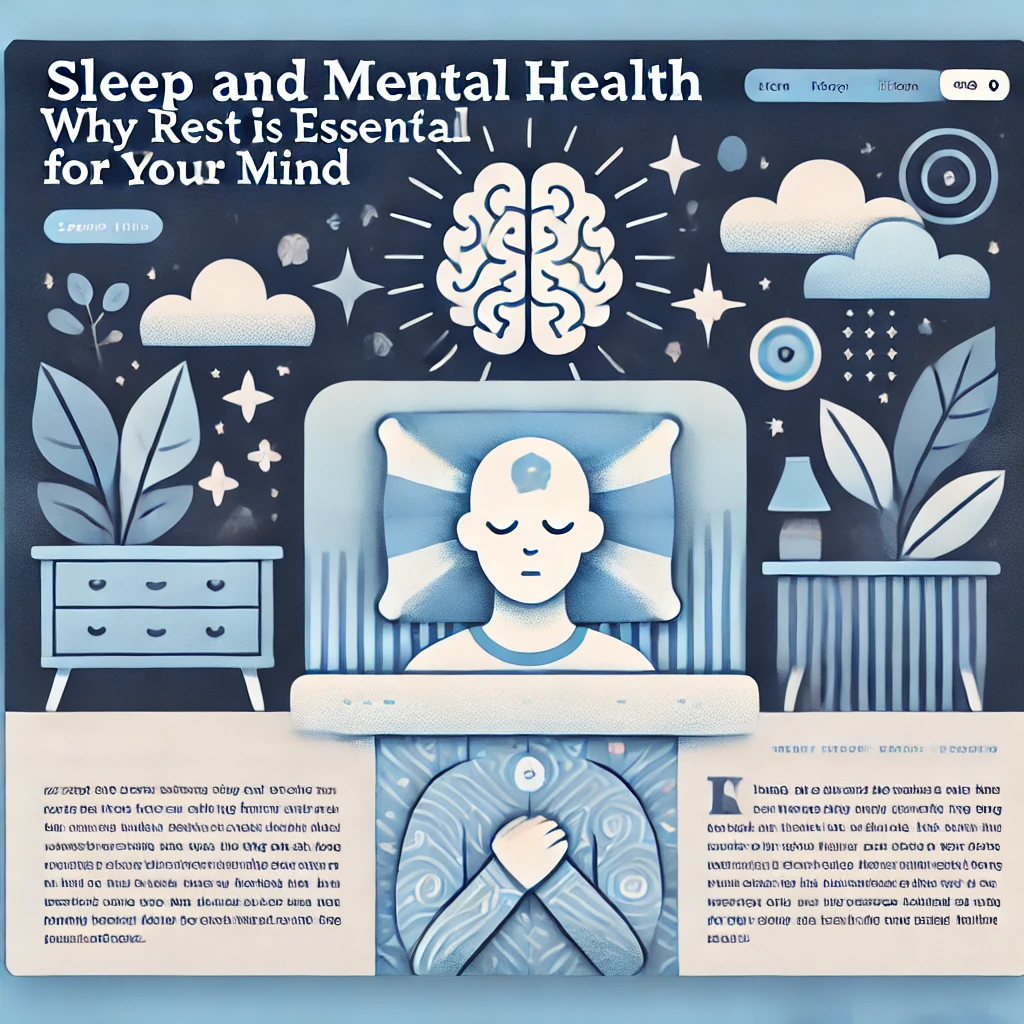Sleep is not just a time when the body shuts down; it’s a vital process that rejuvenates the mind and body. This restorative period plays a pivotal role in maintaining mental health and emotional well-being. Without adequate sleep, our brains struggle to process emotions, make decisions, and maintain balance. Let’s explore why sleep is essential for a healthy mind and how it influences mental health.
What is Sleep and Why Does It Matter?
Sleep is a natural and recurring state of rest where the body repairs itself, and the mind organizes and consolidates memories. It is regulated by the circadian rhythm, our body’s internal clock that aligns with day and night cycles. While we may think of sleep as passive, it’s a highly active time for the brain. Key processes like memory consolidation, emotional regulation, and neural repair occur during sleep.The Connection Between Sleep and Mental Health
There is a powerful, bidirectional relationship between sleep and mental health. Poor sleep can contribute to mental health issues, while mental health disorders can, in turn, disturb sleep patterns.- Mood Regulation: Sleep impacts how we regulate emotions. Research shows that individuals who experience sleep deprivation are more prone to irritability, stress, and mood swings.
- Stress and Anxiety: Chronic sleep deprivation activates the body's stress-response system, leading to elevated cortisol levels. This exacerbates feelings of anxiety and stress, creating a vicious cycle.
- Cognitive Performance: Lack of sleep impairs critical thinking, memory, and decision-making skills, which are essential for maintaining mental well-being.
- Mental Health Disorders: Conditions like depression, anxiety, and bipolar disorder are closely linked with sleep disturbances. For instance, insomnia is both a symptom and a risk factor for depression.
How Much Sleep Do You Need?
The amount of sleep one needs varies by age and lifestyle. Adults typically require 7-9 hours of quality sleep per night, while children and teenagers need more. It’s not just about quantity but also the quality of sleep. Disruptions in sleep cycles, such as waking frequently or shallow sleep, can negatively affect mental health.Tips for Better Sleep and Improved Mental Health
- Stick to a Sleep Schedule: Go to bed and wake up at the same time daily, even on weekends.
- Create a Sleep-Friendly Environment: Keep your bedroom dark, quiet, and cool. Use comfortable bedding and minimize screen exposure before bedtime.
- Limit Caffeine and Alcohol: Avoid stimulants and substances that can disrupt your sleep.
- Practice Relaxation Techniques: Meditation, deep breathing, or gentle yoga can prepare your mind and body for rest.
- Seek Help When Needed: If sleep issues persist, consult a healthcare professional or therapist to identify underlying causes.
Conclusion
Sleep is not a luxury but a necessity for optimal mental health. It’s a fundamental aspect of our well-being that supports emotional stability, cognitive function, and resilience against stress. Prioritizing sleep is one of the most effective ways to nurture your mind and enhance your overall quality of life.References
- Walker, M. P. (2017). Why We Sleep: Unlocking the Power of Sleep and Dreams. Scribner.
- Grandner, M. A. (2017). Sleep, Health, and Society. Sleep Medicine Clinics, 12(1), 1–22.
- Freeman, D., Sheaves, B., Waite, F., et al. (2017). Sleep disturbance and psychiatric disorders. The Lancet Psychiatry, 4(11), 947-956.
- Harvey, A. G., et al. (2018). Sleep disturbance in mental health problems. Nature and Science of Sleep, 10, 193–206.
